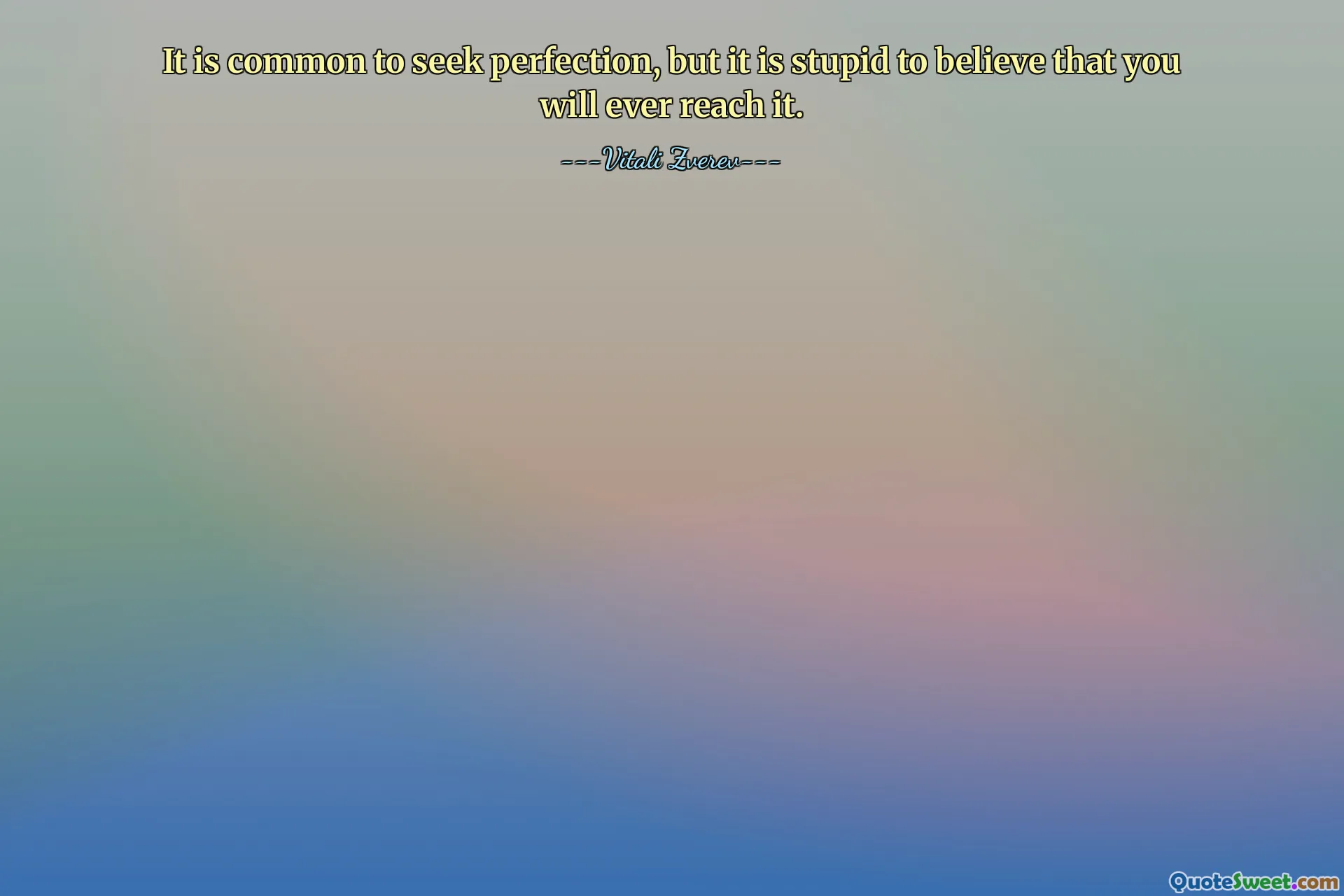
It is common to seek perfection, but it is stupid to believe that you will ever reach it.
This quote touches on a universal human tendency to strive for flawlessness, often as a measure of success or self-worth. The pursuit of perfection can serve as a powerful motivator, encouraging individuals to improve, learn, and grow. However, it is equally important to recognize the futility of aiming for absolute perfection, as it is an elusive ideal that may lead to frustration, disappointment, and stagnation. Embracing imperfection allows us to appreciate the beauty of our inherent humanity—that mistakes, flaws, and shortcomings are not failures but essential parts of our personal journey. By accepting that perfection is unattainable, we can cultivate a mindset of growth and resilience, focusing instead on continuous improvement and self-acceptance. Often, the quest for perfection causes people to set unrealistic standards, which can diminish confidence and create unnecessary stress. It’s healthier to set high goals but remain flexible and forgiving of ourselves. Doing so fosters creativity, authenticity, and inner peace. Recognizing our limits and imperfections does not mean abandoning aspiration but rather adjusting our perspective to value progress over perfection. Ultimately, the pursuit becomes more meaningful when rooted in self-compassion and realistic expectations, enabling us to enjoy the process of growth rather than being burdened by the impossibility of perfection.








